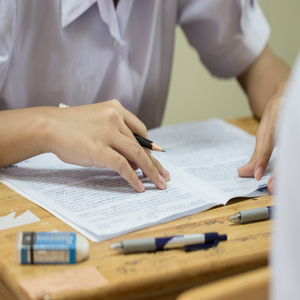14 Repeaters Rank Between 500 And 1,000 After Revising KCET Ranking List, Says Higher Education Minister Karnataka
 The minister added that 2,063 repeaters feature between 501 and 10,000 on the merit list and 22,022 repeaters have ranked between 10,001 and 1 lakh after equal weightage was given to PU (pre-university) and KCET scores under the ‘normalization process. This revised list is applicable only for engineering, agriculture, yoga, and naturopathy courses, whereas the rankings for veterinary and pharmacy courses were decided by considering only KCET scores for repeaters. A total of 2,16,559 candidates applied for the KCET, of which 2,10,829 appeared for the test. Around 24,000 candidates who appeared in KCET 2021, took the examination again in 2022. Many retook the examination to better their ranking.
The minister added that 2,063 repeaters feature between 501 and 10,000 on the merit list and 22,022 repeaters have ranked between 10,001 and 1 lakh after equal weightage was given to PU (pre-university) and KCET scores under the ‘normalization process. This revised list is applicable only for engineering, agriculture, yoga, and naturopathy courses, whereas the rankings for veterinary and pharmacy courses were decided by considering only KCET scores for repeaters. A total of 2,16,559 candidates applied for the KCET, of which 2,10,829 appeared for the test. Around 24,000 candidates who appeared in KCET 2021, took the examination again in 2022. Many retook the examination to better their ranking.
Karnataka Higher Education minister Dr. CN Ashwath Narayan Saturday said only 14 repeaters have ranked between 500 and 1,000 after the KEA (yy) announced the revised KCET (Karnataka Common Entrance Test) ranking list, following a Karnataka High Court order.
However, controversy erupted when the 24,000-odd repeaters were evaluated based on KCET results as against the norm of deciding ranks by giving equal weightage to PU and KCET scores. The KEA clarified that PU marks for repeaters will not be considered because the candidates in 2021 were promoted owing to the pandemic by government order and the evaluation last year was based only on the KCET score.
A two-judge bench consisting of Acting Chief Justice Alok Aradhe and Justice S Vishwajith Shetty accepted the expert committee recommendations of evaluating the repeaters after deducting six marks from their overall qualifying examination (QE) score in physics, chemistry, and mathematics. The Court also disposed of the appeal of the government in accordance with the expert committee’s proposal
On September 23, the Karnataka High Court upheld the recommendations of the expert committee which proposed a normalization process to evaluate the repeaters.
The Karnataka Higher Education Council constituted a committee that suggested the route mean square or the RMS method be used to calculate the difference in the average marks scored by the candidates of 2022-23 and candidates of 2021-22 in physics, chemistry, and mathematics. It was then decided that 6 marks in physics, 5 marks in chemistry, 7 marks in mathematics, and a total of 6 marks for 100 qualifying marks be deducted to evaluate the repeaters. The committee also suggested an increase of IT-related seats to 10 percent to safeguard the interests of candidates.

